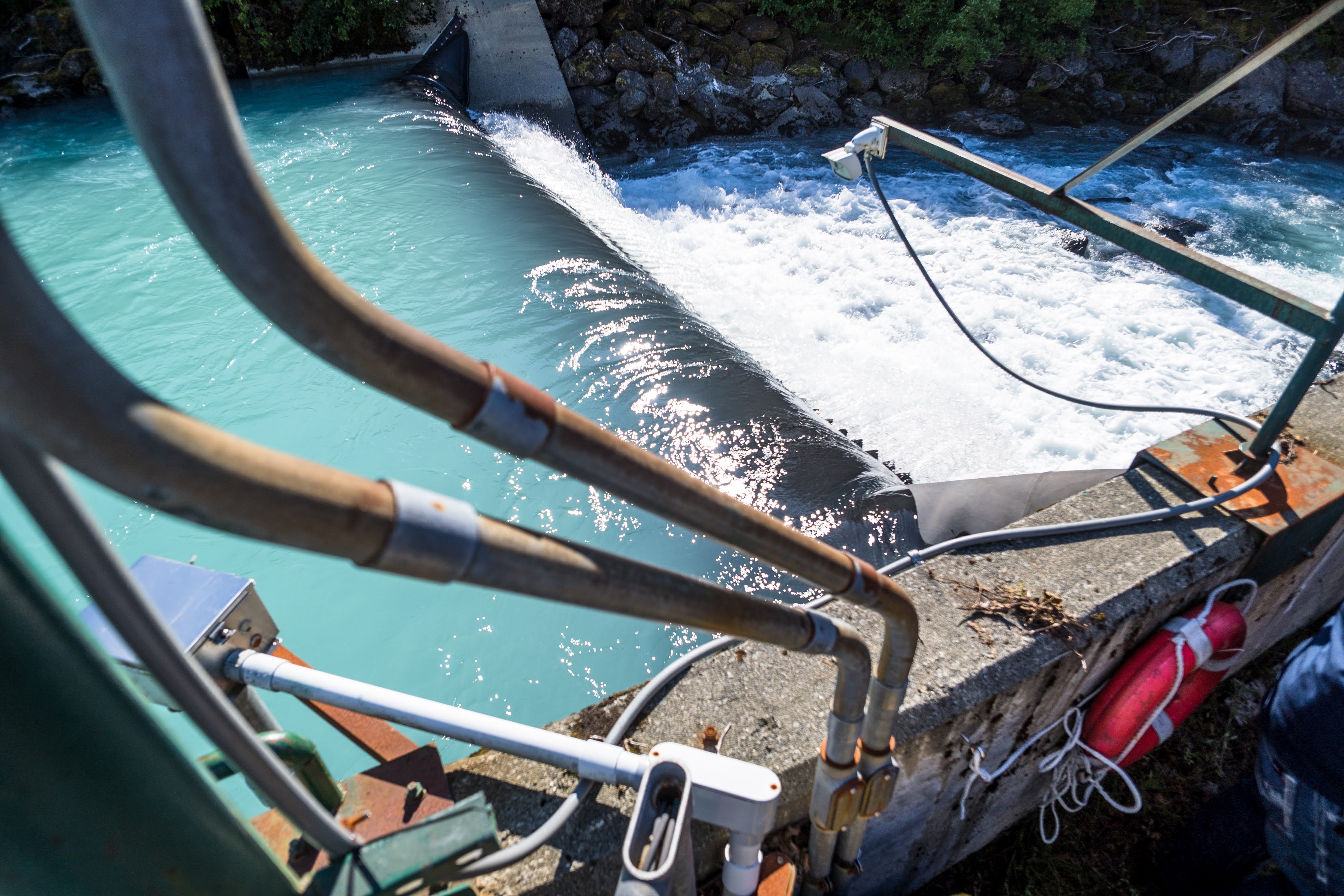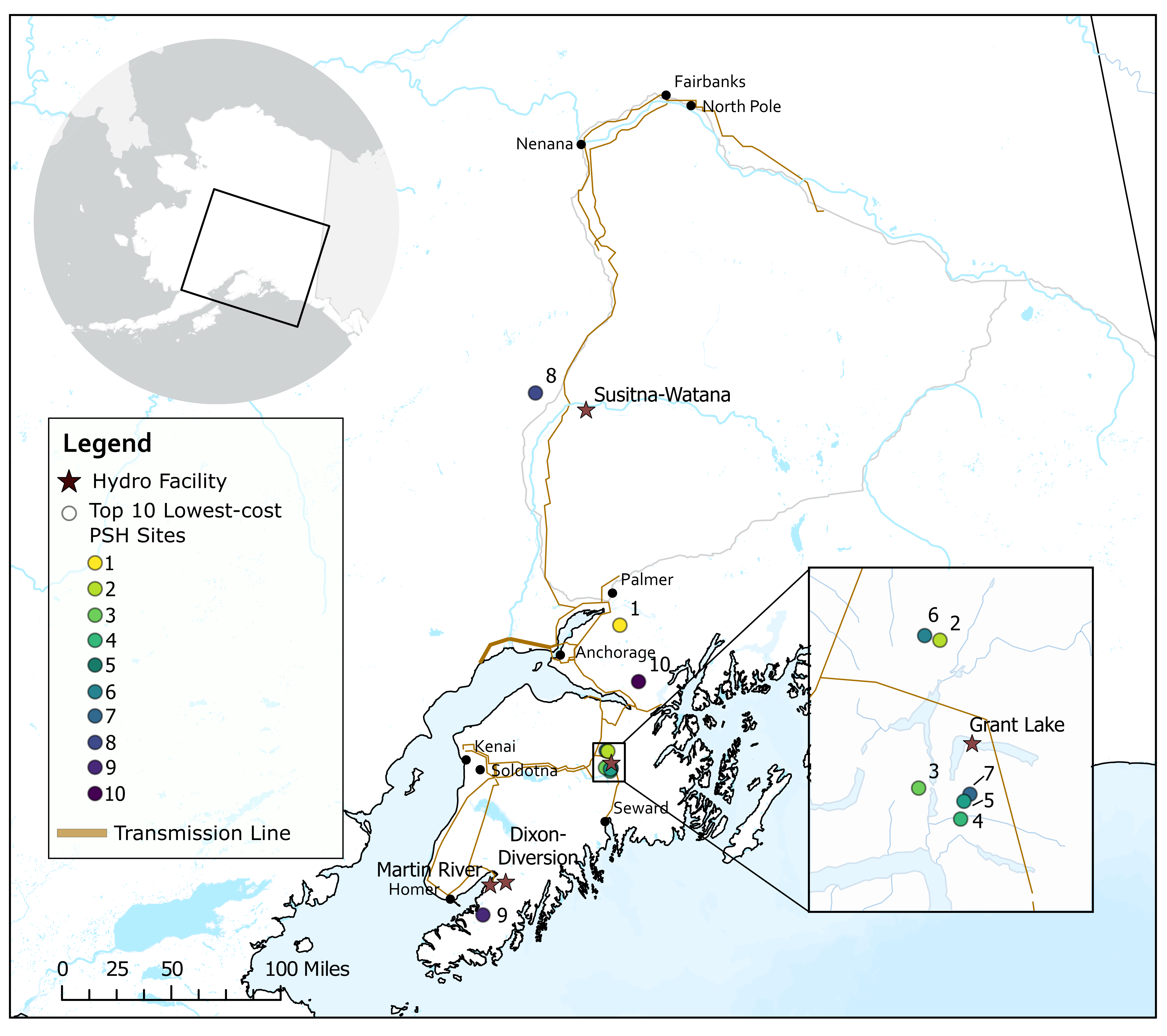A new study will help inform decisions on hydropower technologies in Alaska

Power Creek Hydroelectric Project, Cordova, Alaska. Hydropower uses the kinetic energy of flowing water as it moves downstream from a reservoir above to a powerhouse below.
August 9, 2023
By Yuri Bult-Ito
As Alaska faces the need for sustainable energy solutions just like the rest of the world, reliable and cost-effective energy storage technologies are becoming increasingly important. A new study by University of Alaska Fairbanks scientists explores and provides a comprehensive view on the feasibility of an increased renewable energy capacity in the power transmission system in Alaska. A part of this study evaluated hydropower and pumped storage hydropower (PSH) resources for Alaska’s Railbelt.
The Alaska Railbelt transmission system, commonly known as the Railbelt, is the largest electrical grid in Alaska, covering nearly 700 miles from Homer in the south to Fairbanks in the Interior. The Railbelt supplies 75% of the state’s population with power.
Researchers at the Alaska Center for Energy and Power analyzed aspects of hydropower and PSH, studied how these resources operate on a technical basis as well as the cost, and identified potential locations of these resources in the area surrounding the Railbelt.
Conventional hydropower uses the kinetic energy of flowing water as it moves downstream to the powerhouse from a reservoir situated above it. Turbines and generators convert the kinetic energy into electricity, which is then fed into the electrical grid to power homes, businesses, and industries.
PSH involves two reservoirs, one situated high and the other low. It allows for energy storage when there is excess energy available from renewable sources such as solar, wind, or other sources. The excess energy from renewable sources is used to pump water from the lower reservoir to the upper reservoir, where it is held in periods of low energy demand. During periods of high energy demand, the water is released back to the lower reservoir through a turbine to generate electricity. While PSH has been around for more than a century, advancing technologies make it more attractive for energy storage and grid stability, and it has widely been employed in China, Japan, EU and other European countries and the contiguous United States.
Utilizing hydropower and PSH has many strengths. It is a clean, renewable source of energy, and can provide frequency regulation and reserves.
Use of hydropower and PSH also has downsides; it can have ecological and environmental impacts. For Alaska, where subsistence resources are essential, future planning for hydropower technologies needs careful consideration.

This study can help state organizations, electric utilities, and other stakeholders make informed decisions on hydropower and PSH technologies’ usefulness in Alaska as they create an integrated resource plan and reliability standards.
“This work looks into the distances from the hydro and PSH resources to the grid in more detail than what’s been done in the past, so it provides more accurate cost projections based on those distances,” said Phylicia Cicilio, ACEP research assistant professor and co-author of the paper.
“This updated cost information can be useful for evaluating the economic viability of adding these resources, particularly pumped storage hydro.”
The paper, “Hydropower and Pumped Storage Hydropower Resource Review and Assessment for Alaska’s Railbelt Transmission System,” co-authored by ACEP intern Leif Bredeson and ACEP research assistant professor Phylicia Cicilio, was published in the journal MDPI Engineers. Bredeson is an undergraduate student at South Dakota State University.


